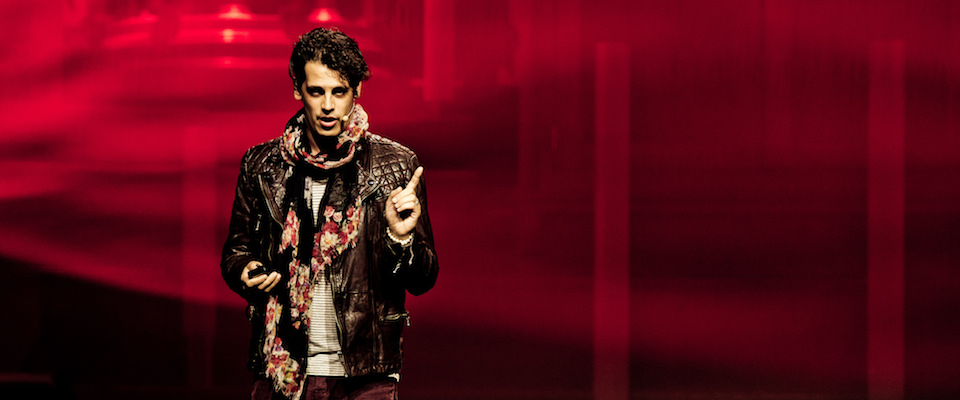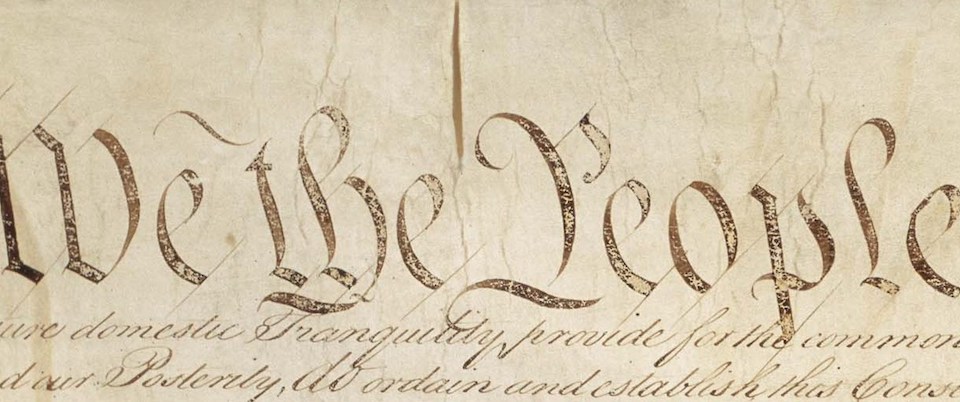If the past year has taught us anything about free speech at UC Berkeley, it’s that it comes with a price—and the university has to pay. In February, the damage reaped upon university property by the black bloc protests of Milo Yiannopoulos’ speech cost the university $100,000. In September, $600,000 was spent on Ben Shapiro, and according to Dan Mogulof, Berkeley’s assistant vice chancellor of public affairs, security costs were well in excess of $800,000 for Yiannopoulos’ Free Speech Week, which ended up being nothing more than an “expensive photo op.”
As the university battles a budget deficit of $77 million and some faculty criticize the university for spending money that it can ill afford, the natural question arises: If it’s not financially reasonable to host a speaker, does the university still have to do it?
In short? Yes.
“The University of California is a public institution and therefore it’s governed and bound by the free speech clause,” says former Berkeley law dean and constitutional law expert Jesse Choper. But: “There are time, place and manner regulations and those… are very elastic.” Meaning, that the university does have the authority to decide when, where, and how—a lecture, a panel discussion, a picnic—takes place.
Though the Supreme Court has been vague about what’s permissible when it comes to charging someone money to speak in the public sphere, the Court has indicated that speakers can be charged a reasonable fee for conducting an event, says Choper. The university can’t refuse a speaker without violating the First Amendment, but they can crack down on where and when the speech happens—and within reason—require the speaker to put up or shut up.
“[People] have a right [to speak], but you have to be practical about preserving other conflicting values,” Choper says. As long as the administration uses fair and objective criteria when determining cost, “[The university] has the right to impose reasonable charges.”
For criteria to be fair and objective, according to the U.S. Supreme Court, any restrictions placed on speech must be content-neutral, meaning speech can’t be restricted based on the ideas presented. The restrictions should also be viewpoint neutral, meaning the same restrictions must apply uniformly to all kinds of speech (e.g. conservatives must be treated the same as liberals). And finally, the restrictions can’t hinder speech any more than is necessary to serve what would qualify as important government interest. And these criteria can vary greatly from case to case.
Current university policy states that student groups need to pay only half of the estimated costs up front, and then are required to pay the remainder three weeks after the event has taken place. Choper suggests instead requiring student groups to put up a bond for the full estimated cost of the event before it happens—which guarantees that the group can pay for it and the university isn’t left in the lurch.

The university is currently in the middle of drafting a new event policy, so such a reevaluation of what is reasonable to charge is likely forthcoming, particularly in light of the more than $1 million dollars that Berkeley spent in the last six months because a select few speakers required heavy security.
“Many of our policies, practices and understandings are out of date already because we’re seeing things that the university has never really seen before,” says Mogulof, “And costs it’s never faced before.”
But what’s legally reasonable and what’s fair to student groups is debatable. The university is mindful that if it hikes costs too high, some organizations will get priced out of the market. And the university doesn’t want to hold student groups accountable for security costs because UCPD intelligence says they require excess security.
“We’re not going to be asking student groups to carry the burden of responsibility for all the measures that are needed in the face of [police] intelligence or the possibility of disruption,” Mogulof says.
And even if the university raises its speaker fees, it’s unlikely that they could ask as much as they would need to pay the high security costs for controversial speakers, whose views the university might reasonably presume will trigger mayhem.
Why? Because the law, which is written to guarantee that there is no prior restraint on speech, dictates that you can’t consider content in imposing charges on a speaker. They can only be charged for content-neutral costs concerning time, place and manner.
In the case of Ben Shapiro, the Berkeley College Republicans only had to pay about $9,000 for baseline security costs, says Mogulof, that is—costs that would have been required of any other group that wanted to host a speaker in Zellerbach Hall. Meanwhile, the university had to shell out $600,000 based on the UCPD’s assessment that there could be dangerous public responses to Shapiro, based on his views. So in accordance with the First Amendment, if they wanted there to be enough security on site, Berkeley had to eat that half a mil.
“It doesn’t matter if the police believe there’s a chance of disruption, and doesn’t matter if the police have intelligence that people will come and protest,” says Mogulof. “The basic security fees that a student organization pays must, as a matter of law and policy, be based solely on neutral criteria…. And we understand that. And that’s why our policies are compliant with the law.”
So basically, the law protects free speech, but it doesn’t seem to protect Berkeley’s bank account from any group that wants to cry wolf.
Even though the university had a policy in place that required student groups be charged 50 percent of the event’s estimated cost up front, they were presented a freak scenario at Free Speech Week, where Yiannopoulos and the student group hosting him didn’t give the university enough information to estimate venue and baseline security charges to begin with.
“[The student group] still hadn’t filed the work necessary to do a security assessment or specify which indoor venues they wanted,” Mogulof says. “It wasn’t clear what we were charging them for, who was coming and which events were real.”
So when Free Speech Week was cancelled the day of, and Yiannopoulos said he would be coming to Sproul Plaza anyway, the university was left paying the $800,000+ bill to maintain order.
And hypothetically, Yiannopoulos, or another group bent on causing a stir, could come back over and over again, bleeding the university dry on security costs.
“There’s a double standard here, because you have campus entities who bring noncontroversial speakers to campus and are expected to pay for all the costs. And for some reason, the campus Republicans aren’t being asked to pay those costs.”
“If a big group marches onto Sproul Plaza and it’s clear that they’re making trouble and you can’t charge them in advance, then the university is stuck in many ways,” Choper says. “If there’s going to be trouble, the university has a right to stop the trouble.”
But (and this is a big, speculative but, says Choper) if a controversial group comes to campus, and it could be proved that they knew their presence would lead to expensive police protection and that their intent was to disrupt, the university could, in theory, charge them subsequently for that. “’They could say, ‘We didn’t charge you in advance, but we’re charging you now!’” says Choper—but that’s entirely theoretical and uncharted territory.
Though the university found itself in a bind in the case of Free Speech Week, some argue that there were some costs—relatively small ones—that the university did not have to incur. In addition to the $600k, Chancellor Christ made an exception to foot the venue bill of $12,000 for Shapiro’s event, even when the Berkeley College Republicans didn’t follow policy. According to Lisa Bedolla, director of the Institute of Governmental Studies, that gave the student group an unfair leg up.
“There’s a double standard here, because you have campus entities who bring noncontroversial speakers to campus and are expected to pay for all the costs,” Bedolla says. “And for some reason, the campus Republicans aren’t being asked to pay those costs. It seems to me that policy should apply equally to everyone.”
And technically, she’s right.
“You’ve got to treat [all groups] equally,” says Choper. “When you’re talking about speech, you cannot discriminate on the content of the speech.” It doesn’t matter if the “group is left or right, liberal, or conservative.”
Mogulof says that Shapiro’s $12,000 exception was different, however, because the university was between drafting event policies, and that provided the chancellor leeway to make that decision.
“The Shapiro event actually surfaced in the interregnum between the end of the old event policy and the new one,” Mogulof says. “And so there was somewhat of an extenuating circumstance that was unique to that period in time, as the university was moving from one policy to another.”
Though Choper says he understands why the chancellor made the decision to pay for Shapiro’s venue—which she claims was her attempt to battle the false narrative that Berkeley doesn’t support free speech—he says that in compliance with the law, “the rules have to be neutral for the future.”
At present, says Mogulof, the chancellor has set up a commission to help revise the policy, with 400+ people having weighed in on how to move forward. Even if the university can’t legally restrict anyone’s speech:
“The commission is going to be looking into whether there are legal, content-neutral strategies and policies or practices that we could adopt that are compliant with the first amendment,” Mogulof says, “But would offer some hope that we could cap or limit the expenses and disruptions that attend to certain speakers.”
At this point, whether or not the university would eventually be allowed to restrict speakers based on cost can only be speculated, Choper says, and until such a case makes it to the Supreme Court, there’s no authoritative answer.






















